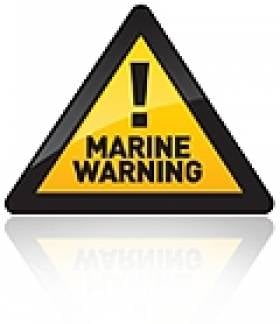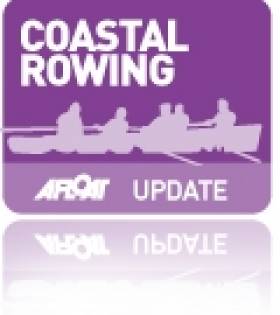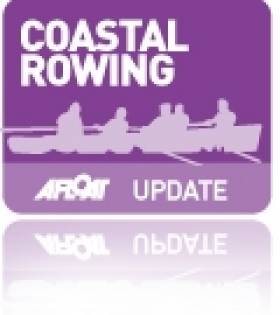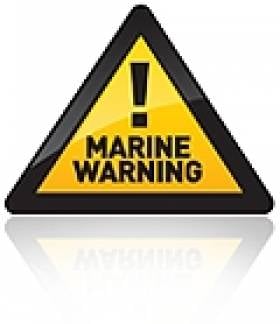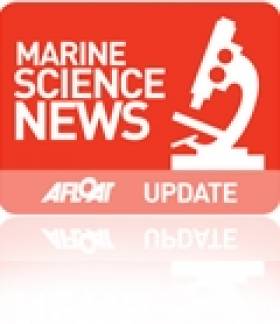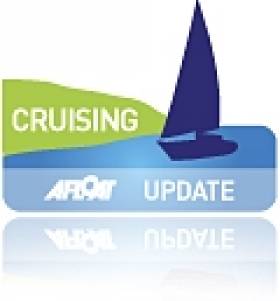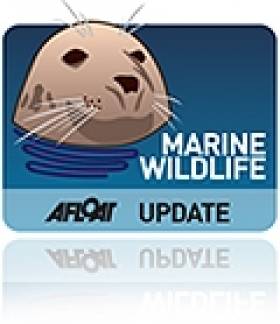Displaying items by tag: Atlantic
Coastal Flooding Risk Warns Irish Water Safety
Flood conditions expose the public to hazards they need to be aware of. Fast moving water can exert pressure of up to four times its speed against the legs of someone attempting to cross it. Because water displaces bodyweight, the deeper a person becomes immersed the less the person weighs so the more difficult it is to remain upright. Never put ones feet down if swept away in floodwater, because foot and body entrapments and pinning are the leading cause of accidental death in rivers and fast flowing water.
Motorists need to be vigilant to avoid flooded areas on roads but particularly near rivers; with poor light and short days it is not possible to determine the depth of floods easily. Swift water will carry cars and other vehicles away and there have been very tragic drownings in the past as a result.
Children are naturally curious about water, therefore parents should caution them that floodwater hides the true depth and that manhole covers may be open and that small streams when swollen are very fast and deeper than normal.
What should I do when I hear a Flood Warning?
· Listen to the national and local radio for met eireann updates and AA Road watch updates
· Check on neighbours particularly if they are elderly, infirmed or families with young children
· Move your vehicles to higher ground
· Move animal stock to higher ground
· Check your small craft to ensure they are well secured or moored
· Make sure you have warm clothes, food, drink, a torch and radio.
· Block doorways and airbricks with sandbags or plastic bags filled with earth. Floodgate products will also work effectively.
· Switch off gas and electricity supplies if flooding is imminent.
· Check the time of High Water in the Newspaper or on http://easytide.ukho.gov.uk/EASYTIDE/EasyTide/SelectPort.aspx
· Check out www.flooding.ie for more detail on General flooding
Personal Safety
· Avoid flood waters at all times
· carry a mobile phone at all times in case you need to call for help - call 112 in emergency
· Wear suitable protective clothing & a lifejacket on or around water
· Do not enter fast flowing water.
· Never put your feet down if swept away by fast flowing waters
· Flooding on roads will be deeper at dips and around bridges.
· Stay away from sea and flood defences.
· when walking or driving, be aware of manhole covers and gratings that may have been moved due to the heavy flow of water.
· Take care when using electric appliances in damp or flood conditions.
· Remember that during the hours of darkness the dangers are multiplied.
After the flood
· Avoid eating food that has been in contact with flood water.
· Run water for a few minutes and wash your taps.
· Check gas and electricity supply.
· Leave wet electrical equipment alone to dry and have it checked prior to use.
· Ventilate your property well.
· Check on elderly neighbors.
Irishmen Break Ocean Speed Record (and Podcast!)
The Sara G, with Irishmen Rob Byrne and Adam Burke making up a third of the crew, set a new world record today by becoming the fastest boat in the history of ocean rowing.
They rowed the long route across the Atlantic from Morocco to Barbados in 33 days 21 hours and 46 minutes, setting the fastest average speed for the crossing. Less than a day before, Hallin Marine had set a record for rowing the Atlantic east-west of 31 days 23 hours and 31 minutes, but they had crossed from the Canaries to Barbados, a shorter journey.
The Ocean Rowing Society, which is the record keeper for ocean rowing, is set to grant the Sara G the Ocean Rowing Blue Riband trophy for their row.
The crew was Matt Craughwell and Dr Graham Carlin from England, Byrne and Burke from Ireland, Thomas Cremona of Malta and Fiann Paul from
Iceland.
Listen in to a podcast from Barbados with Rob Byrne and Irish Times Rowing Correspondent Liam Gorman.
Ocean Rowers Begin Atlantic Record Attempt
The crew of the Sara G have begun their latest attempt on the world record for the fastest crossing of the Atlantic by an ocean rowing boat.
The six-man crew - skippered by Sara G owner Matt Craughwell and featuring Irishmen Adam Langton Burke from Skerries and Bray native Rob Byrne - set off from Tarfaya in Morocco on Wednesday afternoon, headed for Barbados.
The 11.1m boat has a storied history, smashing the record for the fastest row across the Tasman Sea from New Zealand to Australia with its previous owner Steven Gates.
Last year the Sara G crossed the Atlantic for the first time from Agadir to Barbados in 57 days, 20 hours. This year's crew must beat a time of 38 days, 1 hour and 22 minutes to take the record held by Team La Mondiale since 2008.
Rowing southwest to take advantage of the trade winds, the Sara G is presently off the coast of north-west Africa near the Canary Islands.
Click HERE to track the crew's live progress across the Atlantic.
Gale force westerly winds Gusting to 140km/h
Met Eireann have issued a severe weather warning.
Southerly gales or strong gales developing this evening and for a time tonight on all coasts and on the Irish Sea. Winds veering westerly tonight and continuing to reach gale force on coasts from Roches Point to Erris Head to Malin Head overnight.
Stormy conditions will affect Ireland Thursday afternoon, evening and for much of Thursday night. Gale force westerly winds will gust between 100 and 120 km/hr generally, but gusts of up to 140 km/hr are expected in exposed parts of Connacht and Ulster. These winds are likely to lead to some structural damage and will be accompanied by high seas on Atlantic coasts. Winds will moderate considerably towards dawn on Friday.
More HERE
Minister Smith said "I am delighted to sign today a new Accord on Marine Research between Newfoundland and Labrador and the Irish Authorities. The initiative involves a partnership approach between the Fisheries and Marine Institute of Memorial University of Newfoundland and Ireland's Marine Institute including the charter of the state-of-the-art research vessel 'Celtic Explorer'. Both Institutes have strong capabilities in ocean technology and research. Through this alliance, there is now an opportunity to bring the strengths of both Institutes to greater levels".
Minister of State Connick added that "The proposed EU Atlantic Strategy under the EU Integrated Maritime Policy and the support for a Joint Programming Initiative on Healthy Seas & Oceans recently announced by Ms. Máire Geoghegan-Quinn the European Commissioner for Research, Innovation and Science, highlight the increasing importance of linking the scientific challenges on both sides of the Atlantic."
Welcoming the chartering of the RV Celtic Explorer, Mr Clyde Jackman, Minister for Fisheries and Aquaculture – Newfoundland said "It will enable our academic institutions to take their already world class research to the next level and support a state of the art fishing industry that is based on better science. This initiative will create many new opportunities for young Newfoundlanders and Labradorians, as a result of a more vibrant fishing industry and in conducting fisheries science research".
"Thanks to the support of our Provincial Government, the Marine Institute of Memorial University of Newfoundland is further positioned to play a vital role in the future of fisheries in Newfoundland and Labrador. With the chartering the RV Celtic Explorer and the creation of our new Centre for Fisheries Ecosystem Research the Marine Institute is further positioned to play a vital role in fisheries science research in our province," said Glenn Blackwood, the Executive Director of the Fisheries and Marine Institute of Memorial University of Newfoundland.
"Research lead by personnel from the Centre for Fisheries Ecosystem Research and conducted aboard the RV Celtic Explorer will help develop a better understanding of the state of Newfoundland and Labrador's fish stocks and the dynamics of its marine ecosystems, providing new information to support better decisions." he said.
"The strong alliance the Marine Institute, Ireland has with the Fisheries and Marine Institute of Memorial University of Newfoundland will enable transatlantic collaboration to support the rapidly expanding fisheries research programmes in Newfoundland waters" said Dr Peter Heffernan, CEO of the Marine Institute.
"We are delighted with this opportunity to work with such a prominent team of fisheries scientists and we look forward to exploring with our Newfoundland colleagues how we can also build stronger links as part of a wider international ocean observation initiative to study the Gulf Stream and North Atlantic Drift. This could link SMART technology to monitor climate change and environmental conditions in both Irish and Newfoundland waters and stimulate commercial spin off opportunities."
"Projects linking technologies, equipment and expertise on both sides of the Atlantic would therefore enhance Ireland and Newfoundland's capability to perform in the forefront of scientific endeavours as our strategic geographic location demands," he further added.
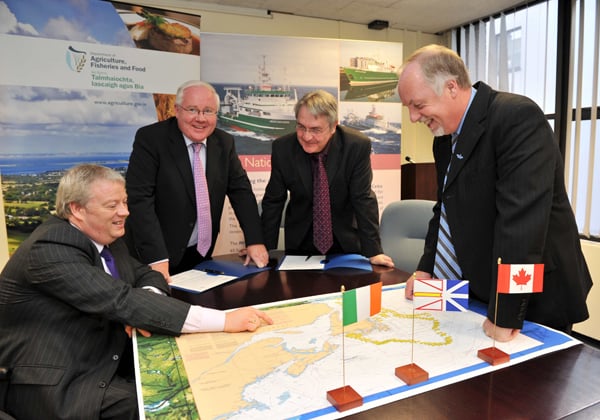
Brendan Smith TD, Minister for Agriculture, Fisheries and Food and Sean Connick TD, Minister of State at the Department of Agriculture, Fisheries and Food signing an accord with their Newfoundland counterparts Minister Clyde Jackman and Deputy Minister Alastair O’Reilly In Agriculture House.
Sailing the Atlantic in Aid of World's Poorest Children
Two old seadogs are preparing to cross the Atlantic in a small sailing boat in aid of the world's poorest children.
Rudi Teichmann, a retired sea captain now living in Ballinspittle, Co. Cork and his friend Gerhard Meschter who lives in Germany are both seasoned sailors and they plan to set sail in their 40 year old boat "Mumpes" in November.
During a lifetime spent on the sea Rudi, who moved to Ireland 15 years ago and was once Captain of the sail training ship Fair Winds, has crossed the Atlantic under sail 14 times in both directions.
For years Gerhard has dreamt of sailing the Atlantic. One day he mentioned this dream to Rudi and the idea for this adventure began to take shape.
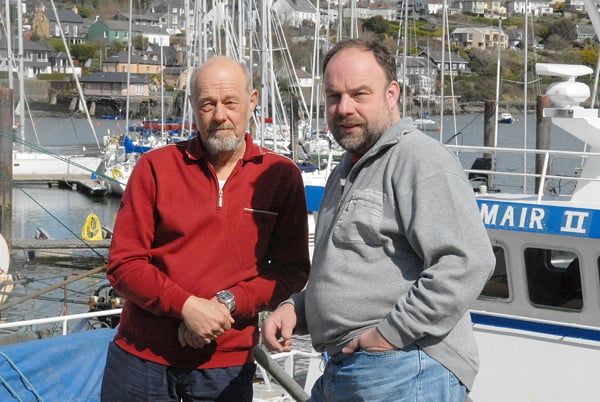
Rudy and Gerhard set for Transatlantic passage
Initially the two applied to join the famous Atlantic Rally for Cruisers (ARC) but their boat "Mumpes", at just 6 metres 45 centimeters in length, was considered too small by the organisers. Although disappointed initially Rudi and Gerhard decided to sail on their own. They are starting with the ARC fleet - though unofficially - and are taking the same route, so they can measure their performance against the much bigger boats inside the rally.
The two veteran sailors have been busy for some time preparing both "Mumpes" and themselves for the crossing. They recently conducted sea trials in Germany and are now happy that both boat and crew are fit for the voyage ahead. They will trailer the boat to Lagos port in Portugal on November 7 from where they will set sail to St. Lucia in the Caribbean shortly afterwards. They will first call at Madeira and then sail to Gran Canaria, from where the ARC starts.
They chose the children's development organisation Plan as the charity to benefit from their efforts because it has branches in their home countries, Ireland and Germany, and also across the Atlantic. Gerhard and his wife Gesa sponsor a child in Haiti and Rudi and his wife Berny one in Sudan.
Rudi says that he hopes that the sailing fraternities in Ireland, Germany, UK, Australia, the US and Canada will support their attempts to highlight the plight of children in the developing world.
"We want as many people as possible, particularly sailors and other marine enthusiasts, to support us by sponsoring impoverished children through Plan" said Rudi. "For the price of some stainless steel shackles or blocks and some yards of rope you can make a real difference to a child's life".
You can follow the progress of Rudi and Gerhard's "adventure for plan" on their website www.ocean-sailing-for-children.org where you can also sign up to sponsor a child through links to the sites of the various Plan country offices.
For more information about Plan Ireland and its work for children or to sponsor a child directly visit www.plan.ie
Energetic Atlantic Dolphins are Fussy Eaters
Atlantic Dolphins choose to eat high-energy fish to suit their energetic lifestyles, scientists have found.
A study of dolphins off the French coast shows that dolphins shy away from less calorie-dense prey in favour of high-energy food. This dispels a myth that dophins are opportunistic feeders that take any food that comes their way.
The study was carried out by Dr Jerome Spitz and other scientist at the University of La Rochelle in France, who looked at the eating habits of short-beaked common dolphins.
This species are the most common type of dolphin in nearby Atlantic waters. The team studied the stomach contents of dolphins caught accidentally in tuna drift nets to see what they ate. They then compared what they found in the dolphins' stomachs with what surveys of trawling fish catches indicated as plentiful in the same waters.
What they found was that dolphins actively select their prey based on its energy density, preferring deep-sea species like lanternfish instead of fish that have lower energy densities.
The dolphins studied turned their noses up at fish with under 5kJ of energy per gram, and sought out rarer breeds of fish that had a higher energy rate.
Two favourites were less common species of lantern fish, the Kroyer's lanternfish and the Glacier lanternfish which have 7.9kJ and 5.9kJ per gram respectively. Other less energetic predators, like sharks, are less fussy and take anything that's going.


























